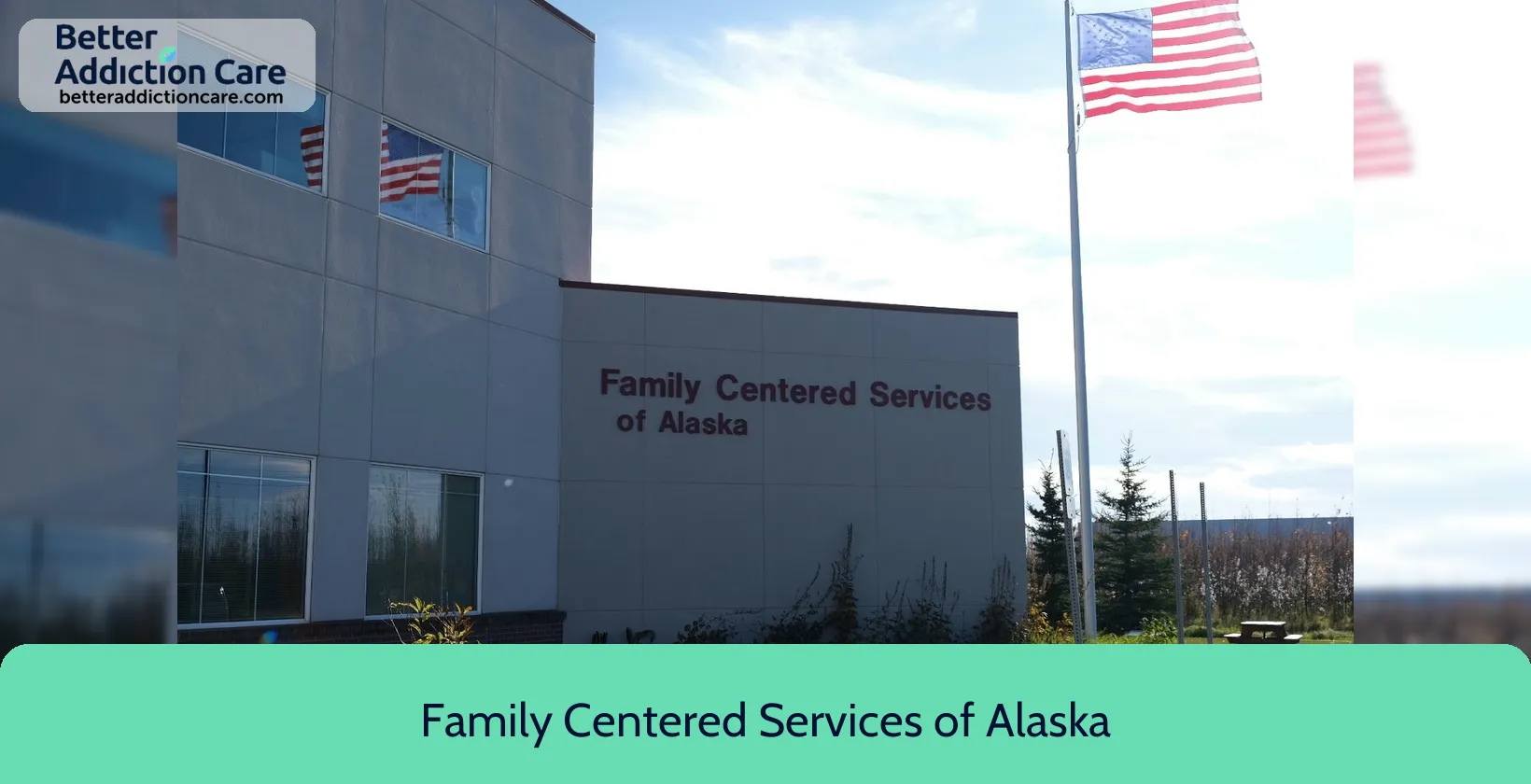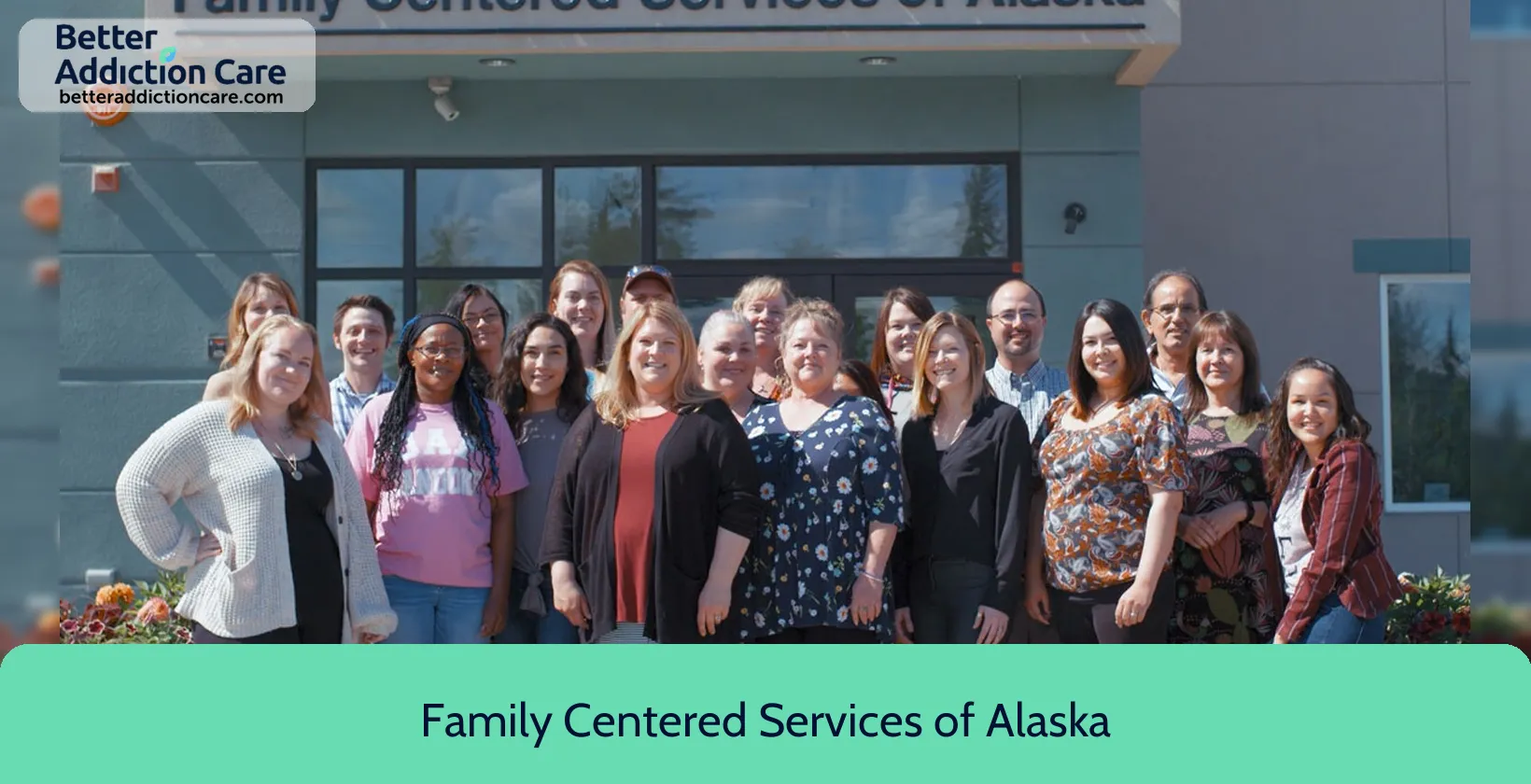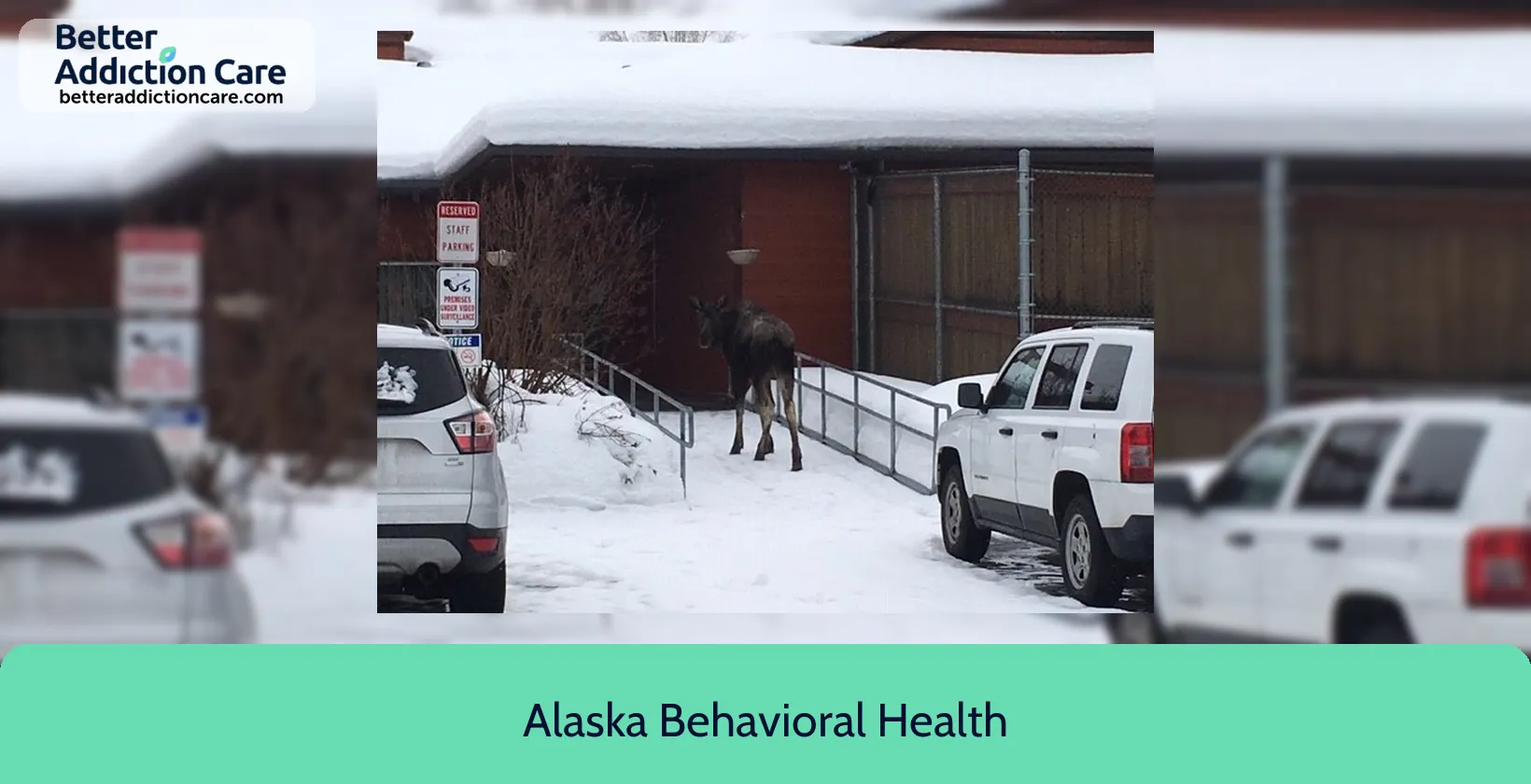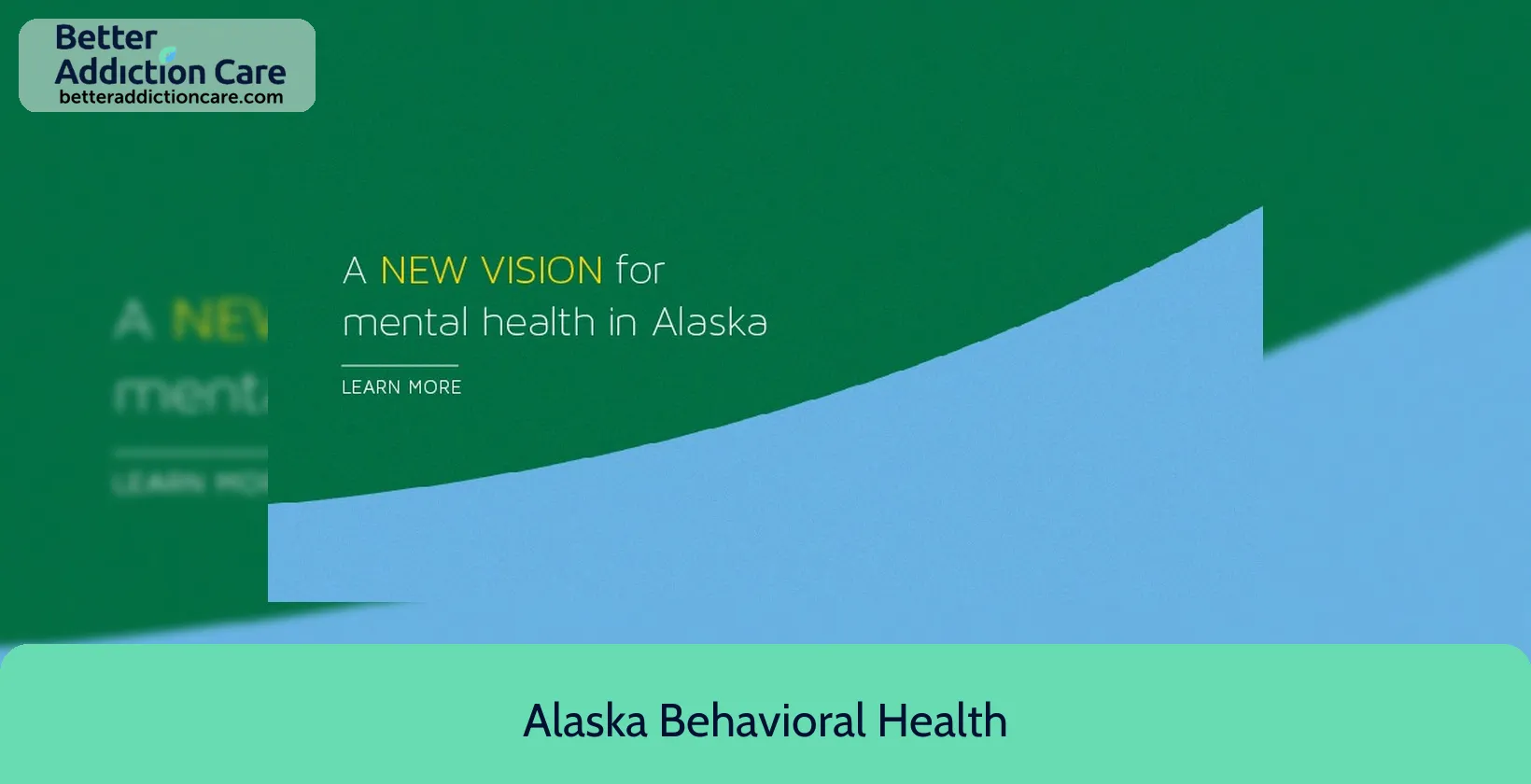Alaska Behavioral Health
Overview
Alaska Behavioral Health is a mental health treatment center for people seeking treatment near Fairbanks North Star County. As part of their treatment modalities for recovery, Alaska Behavioral Health provides couples/family therapy, group counseling, and cognitive behavioral therapy during treatment. Alaska Behavioral Health is located in Fairbanks, Alaska, accepting cash or self-payment for treatment.
Alaska Behavioral Health at a Glance
Payment Options
- Cash or self-payment
- Medicaid
- Medicare
- State-financed health insurance plan other than Medicaid
- Private health insurance
Assessments
- Screening for tobacco use
- Comprehensive mental health assessment
- Comprehensive substance use assessment
Age Groups
- Young adults
- Adults
- Seniors
Ancillary Services
- Intensive case management
- Case management service
- Family psychoeducation
- Integrated primary care services
- Psychosocial rehabilitation services
Highlights About Alaska Behavioral Health
6.68/10
With an overall rating of 6.68/10, this facility has following balanced range of services. Alcohol Rehabilitation: 8.00/10, Drug Rehab and Detox: 6.00/10, Insurance and Payments: 6.00/10, Treatment Options: 6.73/10.-
Alcohol Rehabilitation 8.00
-
Treatment Options 6.73
-
Drug Rehab and Detox 6.00
-
Insurance and Payments 6.00
Treatment At Alaska Behavioral Health
Treatment Conditions
- Mental health treatment
- Alcoholism
- Substance use treatment
- Co-occurring Disorders
Care Levels
- Outpatient
Treatment Modalities
- Couples/family therapy
- Group counseling
- Cognitive behavioral therapy
- Dialectical behavior therapy
- Integrated Mental and Substance Use Disorder treatment
Ancillary Services
Languages
- Sign language services for the deaf and hard of hearing
Additional Services
- Pharmacotherapies administered during treatment
- Mentoring/peer support
- Metabolic syndrome monitoring
Get Help Now
Common Questions About Alaska Behavioral Health
Contact Information
Other Facilities in Fairbanks

6.99

7.39

6.68

7.37

6.82
DISCLAIMER: The facility name, logo and brand are the property and registered trademarks of Family Centered Services of Alaska, and are being used for identification and informational purposes only. Use of these names, logos and brands shall not imply endorsement. BetterAddictionCare.com is not affiliated with or sponsored by Family Centered Services of Alaska.


